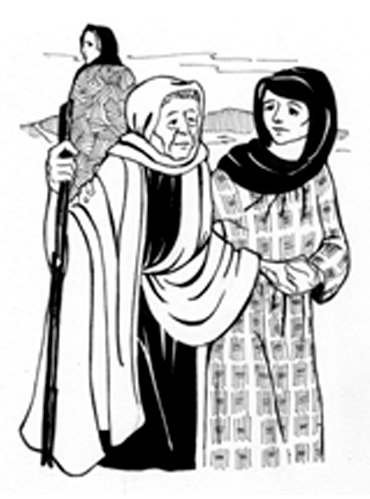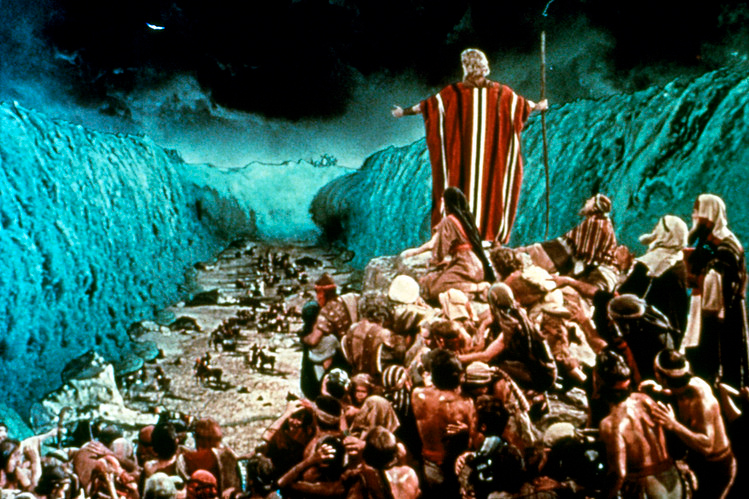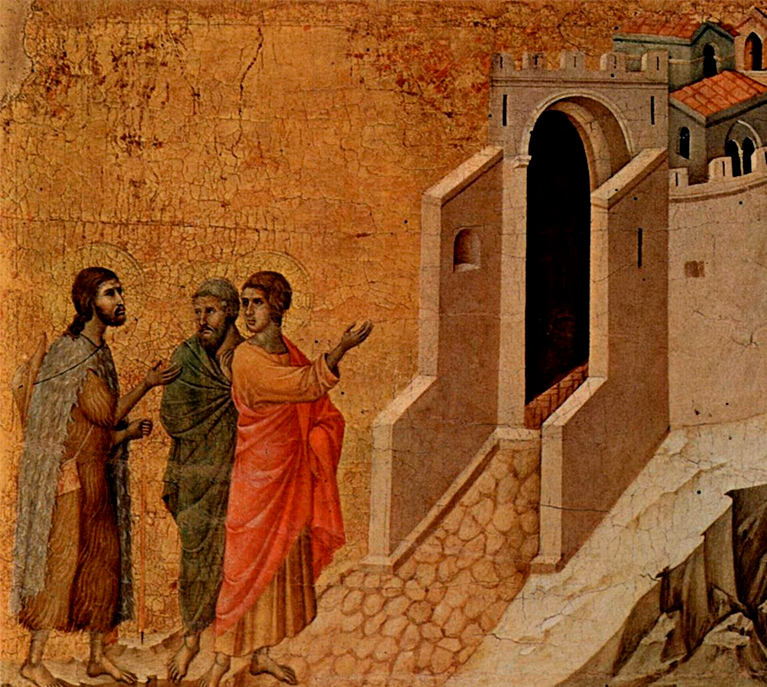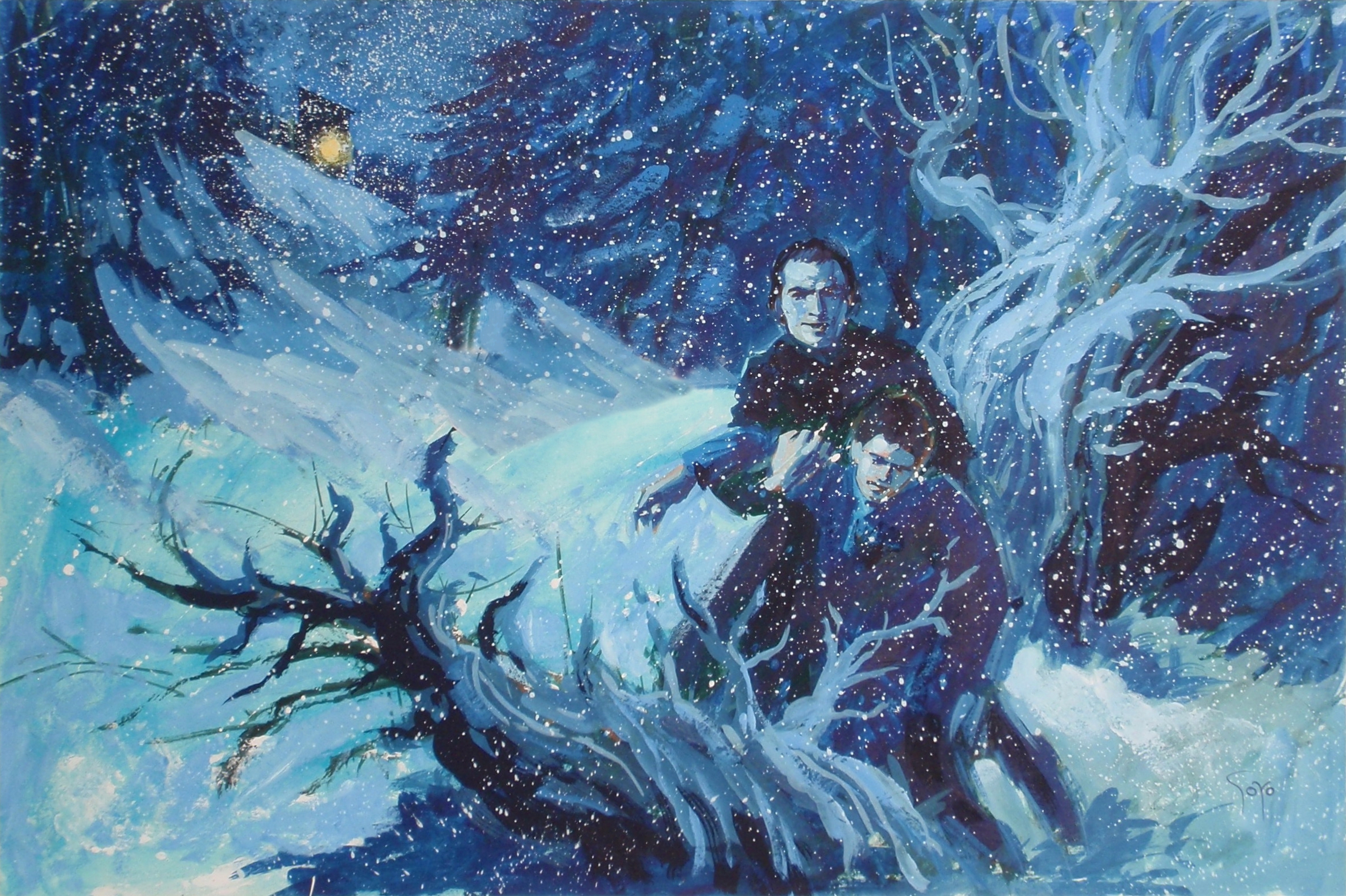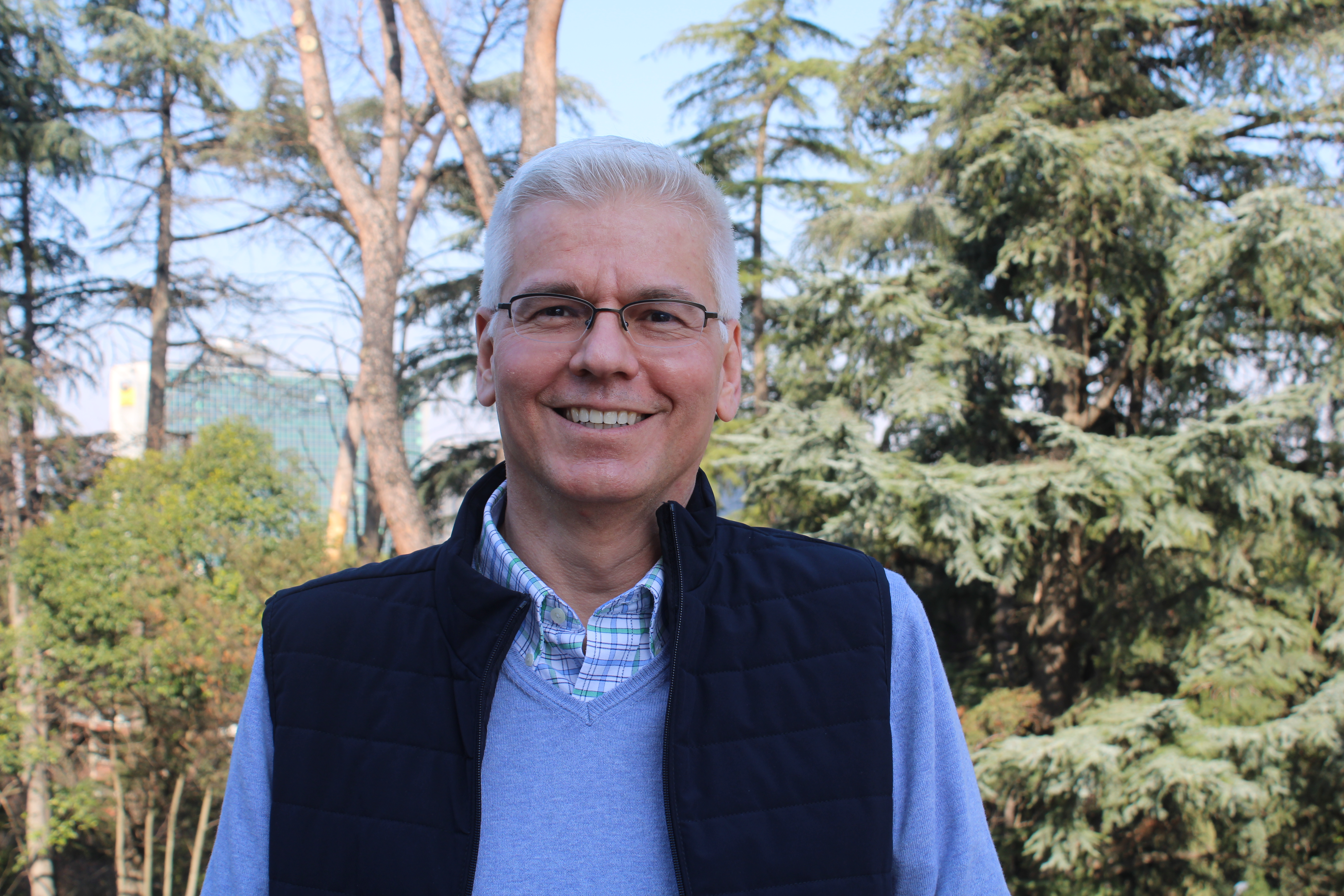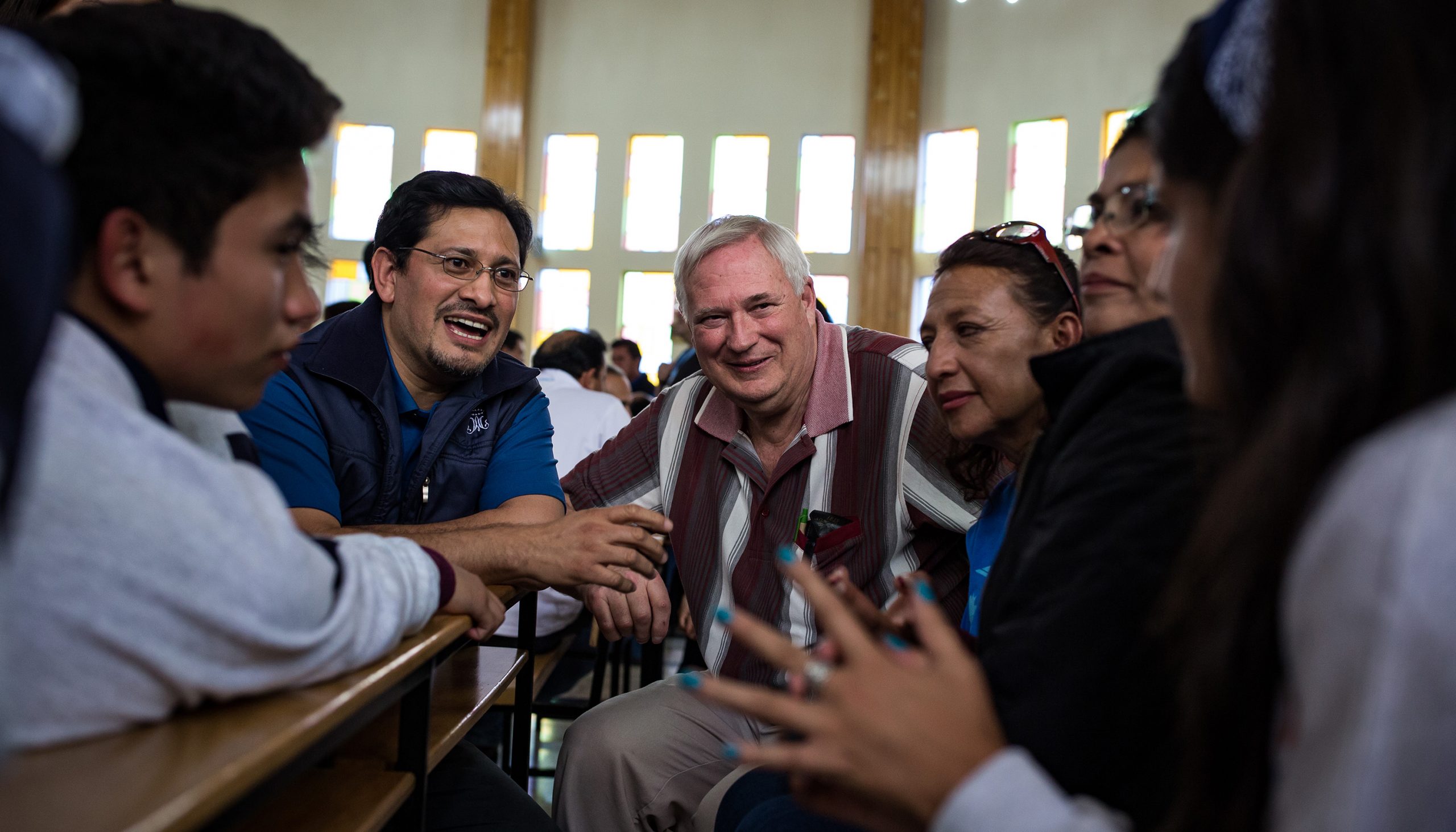
Journeying Together as a Global Family – A reflection by Ben Consigli, General Councilor
“Whenever we encounter another person in love, we learn something new about God”. Pope Francis
Life is a great journey that constantly calls us to leave ourselves behind to follow that uncertain desire that drives us. Certainly, during this time of pandemic with travel all but at a standstill, our life’s journey may have a different meaning than it had many months ago. But even the journey of the past year has offered us both challenges and new understandings. The Christian journey is a process of learning and growing. It is a process of coming to know ourselves honestly and our God intimately.
Our history as a people of God is a journey of growing in God, learning to understand who God is and who we are. Over the course of the past two Lenten and Easter seasons, the scripture readings reveal that to be a people of God means learning to be a different kind of people, a completely unusual and radical people: a people who place God as a priority in their hearts and lives, who care for strangers and foreigners, who care for the most vulnerable people, who protect each other, and who respect the image of God in each other. This is the journey that the 22nd General Chapter called us to almost four years ago.
Our Marist Constitutions remind us to be “seekers of the living God,” and that our prayer should not be “limited to exercises of piety, nor identified with our apostolic work”. Rather, our spirituality must be “grounded in presence and being one with God, who draws nearest when we are attending to the needs of others” (Const #45). There, too, is a call for us to journey so as to “grow in God”, but we do not do this journey alone.
Our Rule of Life present us with a story from the Old Testament: the story of Ruth and Naomi. The Book of Ruth relates that Ruth and Orpah, two women of Moab, had married two sons of Elimelech and Naomi, Judeans who had settled in Moab to escape a famine in Judah. The husbands of all three women die; Naomi plans to return to her native Bethlehem and urges her daughters-in-law to return to their families. Orpah does so, but Ruth refuses to leave Naomi, her mother-in-law, declaring (Ruth 1:16–17), “Where you go, I will go; where you lodge, I will lodge; your people shall be my people, and your God my God. Where you die, I will die—there will I be buried.” Ruth journeys with Naomi to Bethlehem and later marries Boaz, a distant relative of her late father-in-law. She is a symbol of abiding loyalty and devotion.
These three words of Ruth—Wherever you go— convey an “almost unimaginable strength, an ability to endure, persist, … overcome”, and journey. Our Rule tells us that the words of Ruth can help us “express some of our deepest longings as we travel on our life’s journey” (Wherever you go…The Marist Brothers’ Rule of Life. Institute of the Marist Brothers of the Schools, Rome, Italy, 2020, Introduction).
For me, one of the most helpful ways of thinking about our Marist, Christian life is to see it as a journey. The Bible itself is richly imbued with this image. Perhaps the greatest of those was the forty-year journey of the people of Israel from their harsh captivity in Egypt to the promised land of Canaan. Elsewhere, we read of Abraham stepping out in faith to leave the land of his ancestors and go to a place chosen by God. He did not know where he was going, but he knew who he would be travelling with – and that was good enough for him.
In his book, The Liberating Path of the Hebrew Prophets: Then and Now, Nahum Ward-Lev relates that the Hebrew prophets were men and women of their time who challenged the status quo and reminded the Israelites that exodus, the ongoing liberation journey out of oppression and toward human flourishing, is the true heart of God’s covenant with His people. Two powerful principles emerge from Ward-Lev’s exploration of liberation themes: 1) Life is a liberation journey; 2) The journey’s destination is reciprocal relationship. This journey is an engagement with our living God and it is one of mutuality (Nahum Ward-Lev, The Liberating Path of the Hebrew Prophets: Then and Now, Orbis Books, Maryknoll, New York, 2019, p. 24). Likewise, the New Testament relates how the earliest term used to refer to Christians was ‘those who belong to the Way’ (Acts 9:2). They were to be seen as travelers on their way to the New Jerusalem.
A journey is a process of personal or communal development, not simply a means of getting from one point to another. To travel to a distant land is a purposeful and intentional matter. We must believe that this journey is worth undertaking. The journey itself offers us the chance to deepen our commitment to what we are seeking. As we travel, we have the opportunity of reflecting on our goal, and anticipating our arrival. Anticipation of the joy of reaching that goal then becomes a means of sustaining us as we travel. During the journey, the traveler becomes the witness to God’s love, and it is this love which strengthen the traveler to transcend his/her present brokenness and pursue a more loving and life-giving future.
Yet traveling does more than lead us to our goal; the journey inevitably changes us. Life moves us, our encounters transform us. The journey is itself a process, which enables us to grow and develop as we press on toward our goal. To travel is certainly about finally achieving journey’s end, with all the joy and delight that this will bring – but it is also about experiencing and encouraging personal and spiritual growth within us as we travel. Journeying is a process which helps our development as people and as believers.
The journey is never made alone. In one way or another, it is always an experience in community. Jesus sends his disciples out two by two because that is the beginning of a community. Along the way, they share, they argue, they reach decisions together. This mutuality is necessary so no one person “takes charge” of the journey; it is the recognition that one is not in control. The disciples also walked together so that they could be witnesses to each other because the only way to give authority to the words of another is to have a witness. With two, it is possible to support each other, for the journey also took them through moments of discouragement and mistrust.
In the Journey to Emmaus, two followers of Jesus were walking along the road, heading to Emmaus, deep in solemn and serious discussion, when Jesus met them. They could not recognize Jesus and saw him as a stranger. Jesus let them talk about their anxieties and pains; he let them grieve and mourn. Jesus listened to them, who poured out their crises and doubts, and he patiently guided the two disciples “from hopelessness to celebration”. It is important to note that the two disciples showed their openness and caring to the unknown stranger, who is Jesus, by inviting him to stay with them, to join in meal and companionship. On this journey of mutuality, Jesus nourished the two disciples’ faith to such an extent that they saw him in the breaking of the bread. Afterwards, the two realized that their hearts were “burning” during their conversation with Jesus along the way to Emmaus, especially when he explained the Scriptures. They have gone through a journey symbolizing their change of hearts from ‘sad’ to ‘burning’, and they immediately returned to Jerusalem to share their experience with others.
Our own Marist history has events marked by a journey. One such event is the story of the Memorare in the Snow. We know well the particulars of the event: The young Br. Jean-Baptiste Furet, aged 16, was struck with a serious illness during his work while teaching in the school at Bourg-Argental. As soon as Marcellin heard of this Brother’s sickness, he set out immediately for Bourg-Argental which was over 20 km away across a very rugged terrain. Br. Stanislaus went with him, but on their return journey they lost their way in the heavily timbered area at the height of a snowstorm. Both were young and strong, Marcellin being 34 and Stanislaus 22, but hours of wandering lost on the slopes of Mount Pilat led eventually to exhaustion. After some hours of walking in various directions on the slopes of the Pilat range, darkness overtook them and death in the severe cold seemed a distinct possibility. After a while, young Stanislaus had to be helped along by Marcellin, but eventually even he tired and had to stop. “We are doomed”, he said, “if the Blessed Virgin does not come to our assistance” (Henri Bilon, Annals of the Institute: The Memorare in the Snow, Marist Brothers of the Schools, 1884, p. 50). Together in the snow and high wind, they recited the “Memorare”, a prayer seeking Mary’s help in desperate situations. Within a short while, they spied a lighted lamp, not too far in the distance. For the rest of his days, Marcellin saw his deliverance and that of Brother Stanislaus–henceforth referred to as the Memorare in the Snow–as an act of Providence.
What caused Marcellin to set out on his journey in the first place? Care and concern for a sick brother. His great love for his “little brothers” was one of his most memorable qualities. Marcellin lived and “travelled” a “practical Christianity”. For Marcellin, love always translated itself into concrete action. A brother was sick; the founder set out to visit him. Yet, he did not journey alone! God and Mary were with him…and usually one of his “little Brothers”.
Journeying together as a global family becomes an excellent occasion to learn to ask, to allow life to care for us, and to discover the secret providence hidden in the order of things that teach us to act like we are not alone and to know that we need the other. We must learn not to depend solely on ourselves, which means remembering to create room, even emptiness, within us so that another can be welcomed there. The journey is the celebration of and participation in a relationship.
At the end of every journey, there is a time for reinterpretation: the disciples will gather around Jesus and learn to understand what has happened, passing the pages of the memories they have conserved in their hearts. For our early Brother, they would gather around Marcellin to understand God’s providence and Mary’s protection in their midst. Sometimes, however, we are forced to go from one experience to another without taking a breath, without being able to stop and reflect on what we have just lived through. But we should always seek a time, at the end of the journey, when we can stop in order to set out again.
This pandemic has given us the time to stop and reflect on what we have lived over these many months and continue to live. Now, in our lives, in our communities, and in our families, we need to discern anew what it means to ‘journey as a global family’ in the world today.

